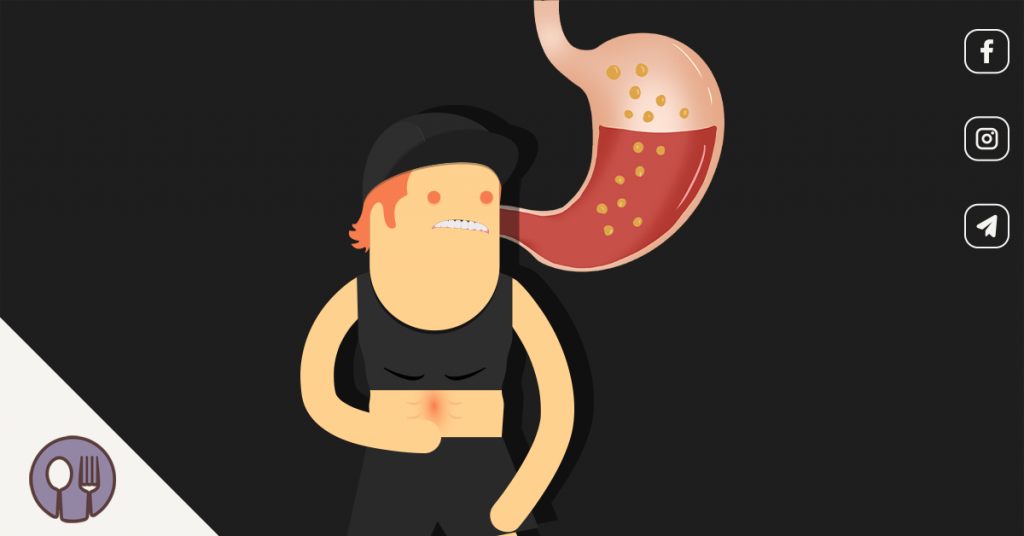Il gastric reflux occurs when stomach contents rise up into the esophagus; it is also called acid regurgitation or gastroesophageal reflux.
This pathology can cause a unpleasant burning sensation in the chest, which can radiate up to the neck, a bitter or sour taste at the back of the mouth, and can also lead to regurgitation of food or liquids from the stomach to the mouth.
Index
Causes of gastric reflux
The lower esophageal sphincter is a circular muscle band at the end of the esophagus; when it works properly it relaxes and opens when swallowed, then squeezes and closes again.
Gastric reflux occurs when this muscle fascia does not tighten or close properly; this allows gastric juices and other stomach contents to go up into the esophagus.
Diet and gastric reflux
Certain types of food and drink trigger or greatly worsen the symptoms of gastric reflux:
- Foods rich in fat
- Spicy foods
- Chocolate
- Citrus fruits
- Pineapple
- Tomatoes
- Onion and garlic
- Menta
- Alcol
- Coffee and tea
Food triggers can also vary from person to person.
Diagnosis
If you think you suffer from gastric reflux and you experience some symptoms such as heartburn and frequent regurgitation, contact your doctor who will perform some tests and ask you about the symptoms.
The following tests are performed for the diagnosis of gastric reflux:
- Barium: After drinking a barium solution, a chest x-ray is taken to examine the upper digestive tract
- Upper endoscopy: a thin tube with a tiny camera is inserted into the esophagus for the purpose of examining it
- Esophageal manometry: a flexible tube is inserted into the esophagus to measure the force of the esophageal muscles
- PH monitoring: a monitor is inserted into the esophagus to know if and when stomach acid enters it.
Risk factors
Certain conditions can increase the chances of developing gastric reflux:
- Obesity
- Pregnancy
- Hiatal hernia
- Connective tissue disorders
Some lifestyle habits can also contribute to the development of this pathology:
- To smoke
- Eat large meals
- Lie down or go to sleep shortly after eating
- Use non-steroidal anti-inflammatory drugs.
Potential complications
In most people, gastric reflux does not cause serious complications, but serious and life-threatening health problems could occur:
- Esophagitis: inflammation of the esophagus
- Esophageal stricture: narrowed esophagus
- Barrett's esophagus: permanent changes to the lining of the esophagus
- Asthma, chronic cough or breathing problems
- Tooth enamel erosion and gum disease
- Cancer of the esophagus
To reduce the possibility of complications, it is important to take steps to prevent the symptoms of gastric reflux.
Home remedies and prevention
There are several lifestyle changes that can be adopted to reduce the risk of developing this condition:
- Stop smoking
- Lose excess weight
- Eat smaller portions
- Chew gum after eating
- Avoid lying down after meals
- Avoid some trigger foods
- Avoid wearing tight clothing
- Muscle relaxation practices
Have you ever suffered from gastric reflux? Let us know in the comments and remember to follow us on our Telegram channel
SUBSCRIBE HERE TO THE TELEGRAM CHANNEL

